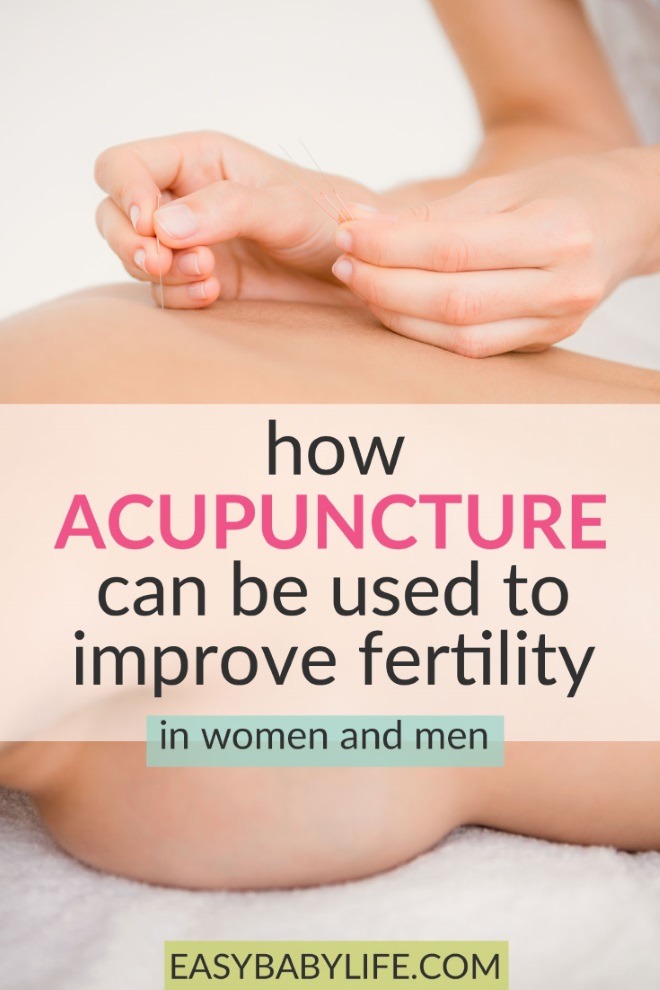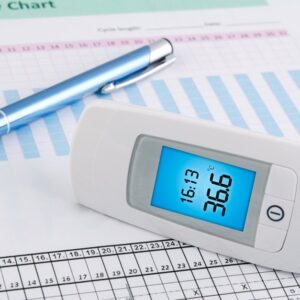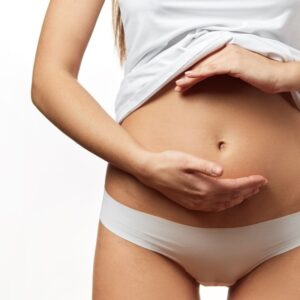 Pin
Pin
Getting pregnant with acupuncture may seem odd. Some women swear by it, while research is not clear on the efficiency of using acupuncture for fertility.
If you’re trying for a baby, you’ve probably realized that the more you try not to think about it, the more you do! It’s normal – most of us can own up to turning into completely paranoid versions of ourselves when actively trying to conceive.
With each passing month, you see that single blue line; you might begin to wonder whether it’s ever going to happen. Fortunately, statistics show that for around 75% of women of childbearing age, conception should happen naturally within a year.
However, if you’re finding things are taking a bit longer, you may need a bit of a helping hand. There are a variety of natural methods thought to aid fertility. Here, we’ll discuss acupuncture as one option to try to boost fertility.
All About Acupuncture For Fertility
What is acupuncture?
The theory behind acupuncture is somewhat bizarre and new-agey, focusing on Qi; a “life force” that supposedly runs through the body. If Qi gets trapped along the way, the body cannot function 100% correctly.
If that hasn’t made you raise a questioning eyebrow and stop reading, then how about this? The method of acupuncture involves the insertion of up to 12 needles into the skin! Not for the faint-hearted! The idea is that needles, inserted into specific pressure points on the body, can help to release the blocked life force.
Originating in China, acupuncture remains an ‘alternative medicine’ (meaning it is not practiced by Medical Doctors). However, with more and more research into its effects, you may have already noticed that your local medical center now offers acupuncture as a treatment for a variety of ailments.
Can acupuncture aid fertility?
Practitioners and followers of alternative medicines mean that the use of acupuncture can promote both male and female fertility: Some suggest this option is explored before seeking any medical intervention such as IVF:
- For women, it is claimed that needles inserted into the relevant pressure points can boost blood flow to the ovaries and uterus. Another effect is restoring the body’s natural hormonal balances and, therefore the menstrual cycle, hence making conception much more likely to occur.
- For men, it is suggested that acupuncture can actually modify the basic structure of the sperm by improving kidney health (traditional Chinese medicine claims sperm is produced by the kidneys). It is also supposed to increase the mobility and motility of those little swimmers. (I find this theory more challenging to believe in. Sperms produced in the kidneys…)
- For both genders, some studies indicate that acupuncture can reduce stress levels, which in turn may improve fertility and also possibly reduce the risk of miscarriage.
To understand more about how acupuncture works to improve a woman’s fertility, watch the video below, which demonstrates the process.
Does it really work?
The truth is, nobody knows! A number of scientific studies have been conducted on the link between acupuncture and fertility, but each study seems to report very different results.
Most studies carried out to date focus on the effects of acupuncture on fertility when used alongside in vitro fertilization (IVF). One such study published in the British Medical Journal showed a 65% increase in successful pregnancies when acupuncture was used in conjunction with IVF. With these sorts of figures, you’d think there was definite evidence to suggest a positive link, right?
Unfortunately, it’s not that simple. Other studies have shown no link whatsoever between the two. The British Fertility Society even concludes that there is currently no evidence that having acupuncture or Chinese herbal medicine treatment around the time of assisted conception increases the likelihood of subsequent pregnancy.
Should I try it?
Yes, if you’re brave enough to cope with the needles! Acupuncture for fertility is known to be a safe technique, and research indicates that it doesn’t affect a fetus in any way.
Whether you believe the theory behind acupuncture or not, there is significant research showing that the method can be beneficial in reducing stress which is a common cause of fertility problems. If you’re suffering from Polycystic Ovary Syndrome (PCOS) it’s also worth giving acupuncture a try, as it may be useful in restoring normal hormonal balances.
Overall, acupuncture is a natural method to improve fertility under certain circumstances. It’s certainly less expensive and less invasive than medical fertility treatments, so it may be worth exploring as a first port of call.
If you have tried acupuncture for fertility or you are considering it, please let us know in the comments below!
Read Next About Fertility
- What Affects the Woman’s And Man’s Odds Of Getting Pregnant
- 10 Important Ovulation Symptoms
- How Mom’s Diet May Affect The Gender Of Her Baby
- How Alcohol Affects Fertility In Women and Men (According to Research)
Have you tried acupuncture for fertility, or are you considering it? Please share any experiences or thoughts – good or bad – below.
References
- Manheimer E, Zhang G, Udoff L, Haramati A, Langenberg P, Berman B M et al. Effects of acupuncture on rates of pregnancy and live birth among women undergoing in vitro fertilisation: systematic review and meta-analysis BMJ 2008; 336 :545 doi:10.1136/bmj.39471.430451.BE
- Zhang X, Lee MS, Smith CA, Robinson N, Zhou Y, Wu Y, Mao Y-Y, Qu F (2018). Effects of acupuncture during in vitro fertilization or intracytoplasmic sperm injection: An updated systematic review and meta-analysis. European Journal of Integrative Medicine 23:14–25
- Jerng UM, Jo JY, Lee S, Lee JM, Kwon O. The effectiveness and safety of acupuncture for poor semen quality in infertile males: a systematic review and meta-analysis. Asian J Androl. 2014 Nov-Dec;16(6):884-91. doi: 10.4103/1008-682X.129130. PMID: 25038176; PMCID: PMC4236334.

Paula Dennholt founded Easy Baby Life in 2006 and has been a passionate parenting and pregnancy writer since then. Her parenting approach and writing are based on studies in cognitive-behavioral models and therapy for children and her experience as a mother and stepmother. Life as a parent has convinced her of how crucial it is to put relationships before rules. She strongly believes in positive parenting and a science-based approach.
Paula cooperates with a team of pediatricians who assist in reviewing and writing articles.







It’s really an awesome blog
Thank you! :-)